What Does The UK Gambling Commission Do?
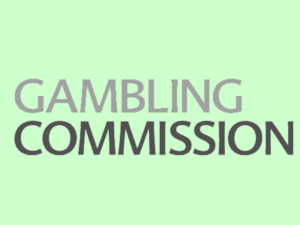 In the UK, any company that wants to offer its gambling services to British customers needs to ensure that it has been issued with a licence to do so by the United Kingdom Gambling Commission, should it plan to be operating legally.
In the UK, any company that wants to offer its gambling services to British customers needs to ensure that it has been issued with a licence to do so by the United Kingdom Gambling Commission, should it plan to be operating legally.
The UKGC is the all-seeing eye of betting and gambling in the UK, responsible not only for the issuing of licences but also for ensuring that companies that have been licensed are living up to their side of the licensing agreement. In cases when that is not happening, the Gambling Commission can issue fines and even revoke the licence altogether.
Given the long history of gambling associated with the United Kingdom, it is perhaps not all that surprising that the country has one of the most robust regulations in the world. It is something of a model for other countries, due in no small part to the way in which the UKGC works. It was created in the wake of the Gambling Act 2005 becoming law and in the years since has grown to become one of Europe’s most highly-regarded gambling authorities. Part of that is down to the way in which the body looks to move and evolve with the times, where it can.
On this site we only list operators with a UK gambling license. Unfortunately while it is illegal for companies to offer gambling services to UK customers without a license many sites that do are located in places where it is not always easy to stop them – the onus is actually on the customer to ensure they gamble with licensed sites. If you gamble with unlicensed sites you will have no financial or safe gambling protection by default, some sites do not pay out or even worse may sell your details to criminals. It is just not worth it.
Before The Gambling Commission
 In the United Kingdom, there is evidence of gambling that goes back to pre-historic times, depending on how strict your understanding of ‘gambling’ actually is. We know that horse racing, card games and games involving the use of dice were gambled on with money in the Middle Ages, for example. Given this, it is perhaps not a shock that there have long been attempts to regulate gambling as an activity in the UK. The first known legislation on the issue dates back to 1190, which was when the King made a decree on the matter.
In the United Kingdom, there is evidence of gambling that goes back to pre-historic times, depending on how strict your understanding of ‘gambling’ actually is. We know that horse racing, card games and games involving the use of dice were gambled on with money in the Middle Ages, for example. Given this, it is perhaps not a shock that there have long been attempts to regulate gambling as an activity in the UK. The first known legislation on the issue dates back to 1190, which was when the King made a decree on the matter.
The King of England decided that gambling was to be limited to noblemen only, with a daily limit imposed regarding the amount of money that could be wagered. The monarchs that followed continued to impose restrictions of their own, with the law around the notion of placing bets being uneven. Whilst the popularity of gambling has always been high in the UK, different monarchs and governments have acted in different ways towards it. A government-sanctioned lottery was launched in 1694, for example, but attempts to ban commercial gambling occurred in the Gaming and Betting Acts of 1845 and 1853.
The most modern version of legislation that was introduced around gambling came in the 1960s, with the Betting & Gaming Act of 1960 passing through Parliament and becoming law a year later. That was the direct pre-cursor to the Gambling Act that resulted in the formation of the UKGC, being the main piece of legislation that ruled how gambling was carried out in the country for nearly half a century. In the end, the Act in 2005 was as much about modernising the UK’s approach to gambling as it was about legislating it in general.
The Gambling Act 2005
 One of the biggest changes that hit the United Kingdom and its approach to gambling in particular came courtesy of the advent of the internet. As online gambling became more and more popular and commonplace, there was an acceptance in the UK that the previous Gambling Acts were unfit for the digital age. There was a desire to change the laws in order to keep up with modern developments, which is why a new Gambling Act was created and signed into law. It had three main aims as a piece of law:
One of the biggest changes that hit the United Kingdom and its approach to gambling in particular came courtesy of the advent of the internet. As online gambling became more and more popular and commonplace, there was an acceptance in the UK that the previous Gambling Acts were unfit for the digital age. There was a desire to change the laws in order to keep up with modern developments, which is why a new Gambling Act was created and signed into law. It had three main aims as a piece of law:
- To ensure that gambling was not connected to crime or criminal proceeds
- To guarantee fairness to those that took part in gambling activities
- To protect vulnerable people, including the young, from the negative impact brought on by gambling as an activity
One of the main things that the new Gambling Act was responsible for was the creation of the United Kingdom Gambling Commission. This executive body was linked to the British government, being the responsibility of the Department for Digital, Culture, Media and Sport. The UKGC was given responsibility for overseeing all legal gambling that took place in the United Kingdom, whether that be via online sites or in physical shops up and down the country. It was also put in charge of regulating the National Lottery, which had launched in 1994.
The pre-cursor to the Gambling Commission was the Gaming Board for Great Britain, which had previously been responsible for regulating the likes of bingo, betting shops, casinos, arcades and slot machines, as well as lotteries. When the Gambling Act of 2005 became law, the UKGC was created in order to replace this out-dated way of ensuring gambling was fair and responsible. Even so, the Gaming Board remained in place until 2007, which was the point at which the Gambling Commission took over the duties of it.
The Gambling Commission Is Established
 The Gambling Commission was set up as a non-departmental government body, with the specific aim of regulating gambling and supervising the gambling laws of the United Kingdom. As with the Gaming Board before it, it covers slot machines, bingo, arcades, betting, casinos and lotteries, with the addition of remote gambling. The only thing that one might consider to be gambling that isn’t the responsibility of the UKGC is spread betting. Any free prize draws are competitions are also free of the Commission’s overall control.
The Gambling Commission was set up as a non-departmental government body, with the specific aim of regulating gambling and supervising the gambling laws of the United Kingdom. As with the Gaming Board before it, it covers slot machines, bingo, arcades, betting, casinos and lotteries, with the addition of remote gambling. The only thing that one might consider to be gambling that isn’t the responsibility of the UKGC is spread betting. Any free prize draws are competitions are also free of the Commission’s overall control.
The responsibility of the Department for Culture, Media Media and Sport, the Gambling Commission’s stated aim is ‘to keep crime out of gambling, to ensure that gambling is conducted fairly and openly, and to protect children and vulnerable people.’ In 2018-2019, an additional business plan was released which suggested that the UKGC should also look to improve industry standards, as well as consumer protections, and to ‘further public protection from gambling related harm.’ The main job of the Gambling Commission is to issue licences to gambling operators, but it can also revoke them and levy fines.
UKGC As Licence Issuer
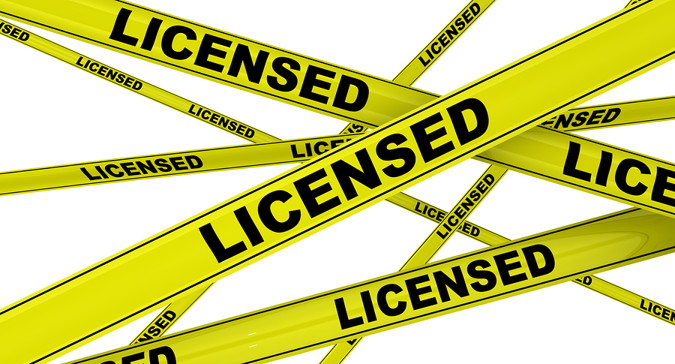
Whilst there are jobs that are the remit of the UKGC, such as advising government departments on both a local and a national stage about gambling related issues, there is no question that the Gambling Commission’s biggest role is as the body that tends to issue licences to companies wishing to over their services to people based in the United Kingdom. This includes both physical locations such as betting shops and casinos, as well as online sites that allow punters to place bets on a whole host of different bets and wagers once they’ve become customers.
The UKGC will issue licences to companies that that have remote gambling equipment located within the territory of Great Britain. Not only that, but any companies based outside of the UK but hoping to advertise their services to customers based within England, Wales or Scotland will also need to get a licence. That has been the case since the passing of the Gambling (Licensing and Advertising) Act of 2014. That moved to change the licensing requirements in order to ensure that a licence was needed if companies were taking money for their services from people based within the borders of the United Kingdom.
Acting As The Regulator
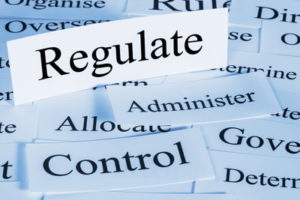 Away from the actual issuing of the licences, the Gambling Commission is also responsible for ensuring that the licensees act according to the conditions of the licence. This means that it can visit the businesses and examine their finances, with the ability of specialists to then issue recommendations. Further conditions of the licence can be put in place, or the licence as a whole can be removed from the company in question. Licensees that have broken the conditions of their licence can be issued with a range of actions, depending on what they’ve done.
Away from the actual issuing of the licences, the Gambling Commission is also responsible for ensuring that the licensees act according to the conditions of the licence. This means that it can visit the businesses and examine their finances, with the ability of specialists to then issue recommendations. Further conditions of the licence can be put in place, or the licence as a whole can be removed from the company in question. Licensees that have broken the conditions of their licence can be issued with a range of actions, depending on what they’ve done.
There is an intelligence department of the UKGC, whose job is to collect information about any and all illegal activities that are carried out by the companies that are working under a licence issued by the Gambling Commission. They will move to do what they can in order to build a picture of what is happening and that information will be passed up the chain. If necessary, other organisations, such as the police, will be supplied with the information the UKGC has obtained. The organisation puts a list of companies that have had a regulatory sanction imposed against them on its website.
Examples Of Regulatory Actions
 The Gambling Commission is always working to ensure that companies offering betting services in the United Kingdom do so in a way that is in the best interests of UK-based clients. As a result, it has had to take action against businesses that have, for one reason or another, broken the conditions of its licence.
The Gambling Commission is always working to ensure that companies offering betting services in the United Kingdom do so in a way that is in the best interests of UK-based clients. As a result, it has had to take action against businesses that have, for one reason or another, broken the conditions of its licence.
These actions are done to encourage the businesses themselves to fix the error of their ways, but also to ensure that other companies are able to check how they operate and work better in the future. Here are some examples of regulatory actions the UKGC has taken:
- In December of 2016, the Gambling Commission issued a fine of £3 million to Camelot Group, the operator of the National Lottery. This was because the company had failed to verify a Lotto ticket that had been been presented seven years before. It was felt that there were poor fraud prevention controls and that the terms of the licence had been breached. The police investigated, discovering that a member of the fraud team can conspired with someone to claim a prize of £2.5 million, using a fake ticket to do so.
- William Hill was issued with a fine of £6.2 million in 2018. This was because the operator had failed to protect players and allowed a series of ‘systematic failures’ to happen, preventing money laundering from being stopped.
- LeoVegas was issued with a penalty of £600,000 in 2018 when misleading adverts were produced, with self-exclusion failings also taking place. Later in the same year, 32Red was hit with a fine of £2 million when a problem gambler was allowed to deposit £758,000 with the company over a period of more than two years. They had not moved to make sure that the customer could afford the losses, in spite of previous rulings on the issue, and that they only earned £2,150 per month.
- Ladbrokes Coral had to pay £5.9 million in 2019. This was due to past failings on the issue of money laundering, as well as social responsibility. Investigations discovered that effective safeguards weren’t put in place in order to prevent consumers from suffering gambling harm, nor to stop money laundering, with the failings dating from between November 2014 and October 2017.
Obviously these examples are far from exhaustive, but it offers a sense of the sort of thing that the Gambling Commission looks to stop from happening with its licensees.
What The UKGC Don’t Do
 Whilst the Gambling Commission is responsible for a wealth of different things and pretty much everything to do with licences for gambling companies, there are certain things that are not with the UKGC’s remit. For starters, the Gambling Commission is a ‘regulator and not an ombudsman.’ In other words, the organisation does not have the power to resolve gambling complaints of individuals, nor to help customers get their money back in instances where they feel that they have been wronged by a licensed organisation.
Whilst the Gambling Commission is responsible for a wealth of different things and pretty much everything to do with licences for gambling companies, there are certain things that are not with the UKGC’s remit. For starters, the Gambling Commission is a ‘regulator and not an ombudsman.’ In other words, the organisation does not have the power to resolve gambling complaints of individuals, nor to help customers get their money back in instances where they feel that they have been wronged by a licensed organisation.
Indeed, customer complaints in general are not something that the UKGC is responsible for. There are complaints procedures in place that people need to follow, should they feel that they have been let down in some way. If you think you need legal advice, it is not the role of the Gambling Commission to issue it. There are also some forms of gambling that aren’t regulated by the UKGC, which are as follows:
- Small society lotteries
- Spread betting
- All gambling websites
Society lotteries are regulated by local authorities and don’t need a gambling licence. Spread betting is the jurisdiction of the Financial Conduct Authority, whilst the Gambling Commission only regulates gambling websites that trade with or advertise to customers in the United Kingdom of Great Britain.

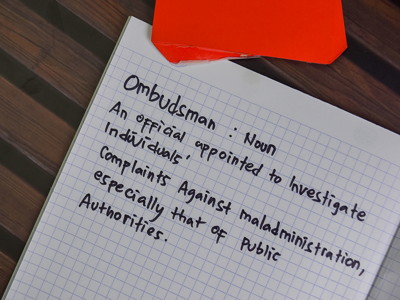 ;
; ;
; ;
; ;
; ;
; ;
; ;
;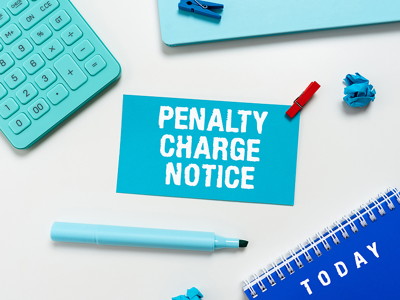 ;
;

